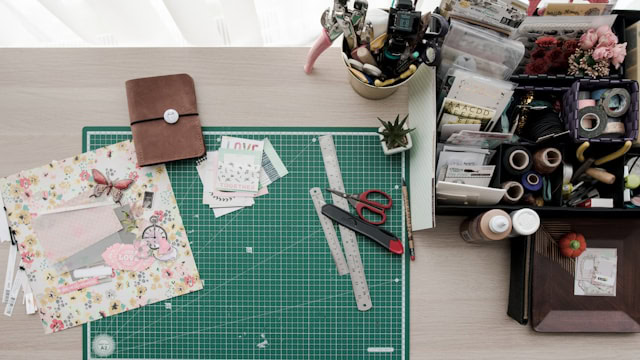Arts and crafts carry a surprisingly green social impact.
With eco-conscious makers sharing their methods, products and approaches to sustainable trade, community engagement follows naturally. Craft fairs give us the opportunity to spend quality time together and buy authentic, one-off pieces straight from the maker. By getting more people involved, these entrepreneurs are paving the way towards a circular economy.
In this guide, we’ve explained a bit more about the transformative power of arts for social change.
Crafting for a cause: How do artists and makers support the planet?
Artists and makers use their talents to bolster a range of environmental and social progress. From charitable workshops to markets held for community causes, there are so many different ways in which creativity and ingenuity come together and yield amazing results.
Entrepreneurship
Ethical consumerism is the main prerogative for many artisan makers. Sustainable practices and the use of fairtrade, organic materials keep crafts considerably more environmentally-friendly than mass-produced alternatives.
Using recycled materials and by minimising waste during production, these entrepreneurs set strong examples for other makers. Over time, this inspires a shift towards locally focused business models. On a regional scale, this stimulates economic growth in an eco-conscious sector.
Crafting for charity
Makers frequently contribute to charitable causes through local initiatives. From handmade fundraisers to craft markets and community arts projects, craft fundraising inspires new and established makers to promote their own efforts.
And by channelling skills and energy into these projects, often held for the environment and a wide range of other causes, makers then amplify their mission. Charitable crafting not only raises awareness about the causes highlighted but may also foster a sense of community and solidarity amongst people who already want to make a positive difference.
Empowering communities
By providing opportunities for skill development, social gatherings and new trade, artisan makers empower local communities. Local crafting projects are often based in schools and public venues, improving accessibility for those with limited opportunities. And it’s easy to take on as a hobby too: you only need materials, adhesives and craft storage to get started.

Creative expression can even carry a transformative impact for those facing social or economic challenges. When makers support and promote small-scale enterprises, they strengthen the engagement and resilience in communities. Through local collaboration, they cultivate a sense of pride in respecting the environment.
Environmental advocacy
Crafters and makers are often advocates for the environment and its conservation.
Artists use recycled materials and sustainable techniques to create eco-friendly art, furniture, and fashion. Whether they spread their green approach through crafting workshops, social media campaigns or educational events.
By incorporating recycled or reused materials and sustainable techniques into their creations, they demonstrate that a circular economy is possible. These efforts attract crowds to towns and cities for craft fair, giving sustainable shopping a real place in modern trade.
Upcycling
Finally, crafters also use trade fairs, exhibitions and fundraising events to champion upcycling as a sustainable alternative to traditional manufacturing processes. When materials are repurposed into new objects and given another purpose, a whole cycle of capitalism can be avoided.
Upcycling and recycling keep environmental impact to a minimum and inspire resourcefulness and creativity, encouraging others to reconsider their approach to their material needs.
ad/collaborative post. Photo by Volodymyr Proskurovskyi on Unsplash






